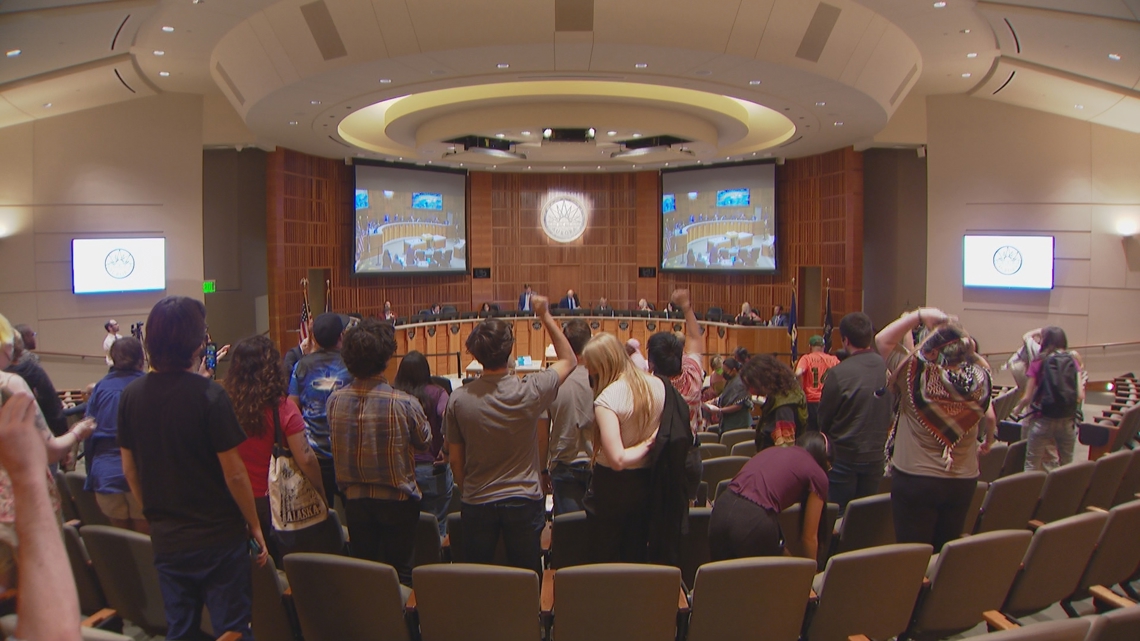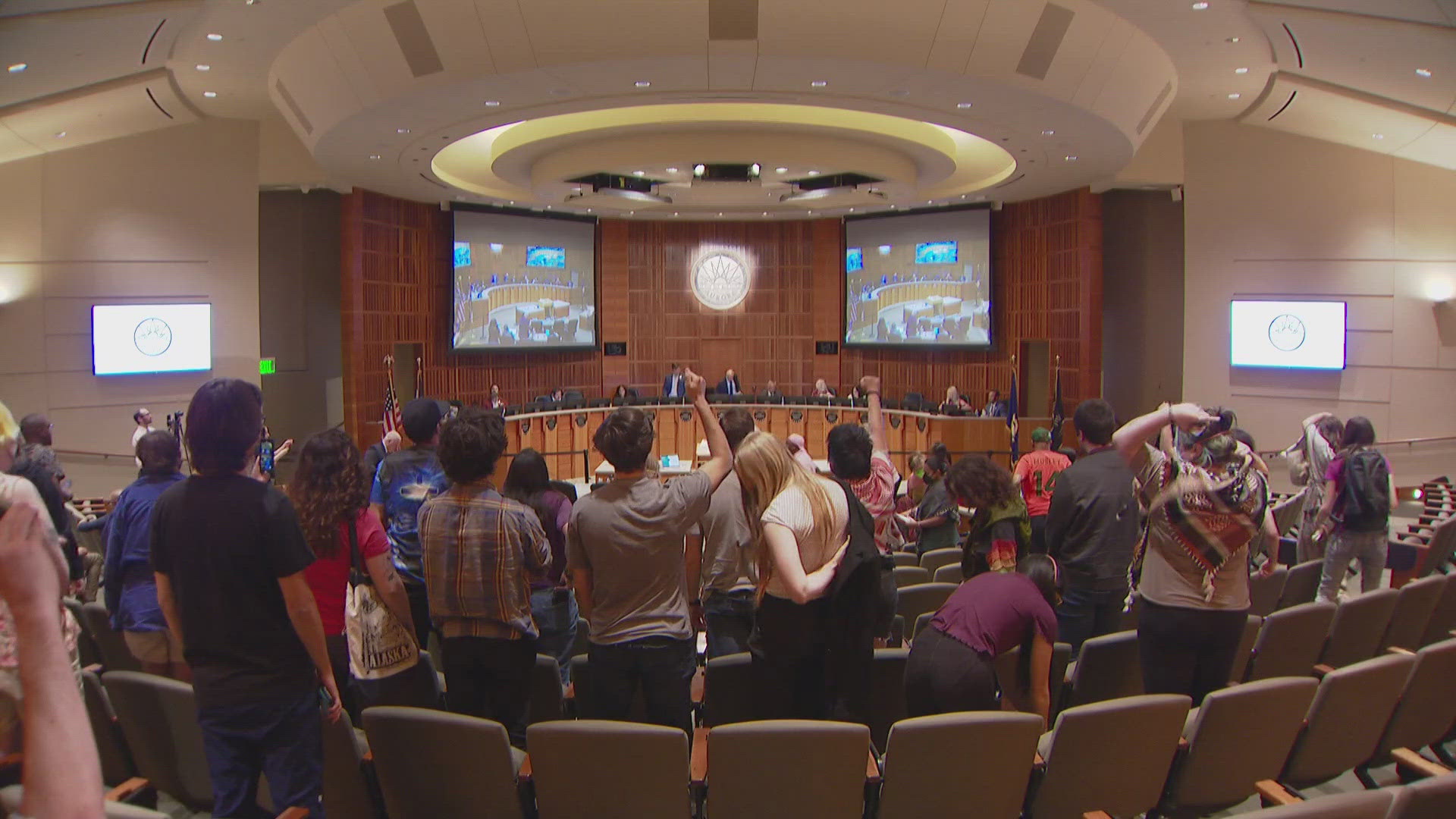AURORA, Colo — At the Aurora City Council meeting on Monday night, a virtual participant used his time during public comment to declare himself a white supremacist and launch into a barrage of racist and homophobic remarks.
To the shock of many who attended, the council members remained silent, allowing him to continue uninterrupted.
"People like me are getting pissed off. The people that they keep calling white supremacists. That's right, that's exactly what I am," the man said within the first minutes of speaking. He was the last person to speak at public comment.
However, this incident, though alarming, is not unique.
In May, an individual interrupted a Denver City Council meeting with racial slurs directed at two Black elementary students who were presenting. Months earlier, in November, antisemitic rants took over a city council meeting in Wheat Ridge.
"Hate speech is legal. Hate speech is protected," said Katia Campbell, a communications professor at Metropolitan State University of Denver who specializes in hate speech and civil discourse.
Campbell emphasized that incidents like this are becoming increasingly common, and it is up to municipalities to establish guidelines to handle them.
As the Aurora meeting concluded, tensions rose. Attendees confronted council members, demanding to know if they would denounce the speaker’s remarks. The officials, however, gave no response. Chants erupted as frustration mounted.
The council's bylaws do not outline specific procedures for addressing hate speech during public comments. In a statement following the meeting, a city spokesperson said, “The city is looking at ways to deal with situations like this in the future while not infringing upon an individual’s First Amendment free speech protections.”
“The minute this person started spouting hate and bigotry, there should have been an interjection," Campbell said. "People are afraid to do anything because they're afraid of being attacked about the First Amendment.”
Campbell did offer a solution that council members could use in the future.
“It could be something like, ‘Sir, can you please get back to the point without attacking others?’ If he continues, shut it down,” she said.
Despite her expertise, Campbell remains unsettled by the growing boldness of individuals expressing white supremacist ideologies.
"People are proud to be white supremacists," she said.
Campbell argues that establishing safeguards for situations like this doesn't violate free speech but is essential for protecting it. She believes government bodies should start implementing these measures, warning that by allowing hate speech to go unchecked, they may undermine the First Amendment rights they seek to protect.
“It can impact people in a way of not wanting to participate in these types of civic engagement," Campbell said. "If people know that they're going to go to something like this and then just be subjected to vitriol just based on the color of their skin or their identities."
A city spokesperson confirmed that, per policy, this part of the meeting will be excluded from the city's rebroadcasts and online recordings. When pressed for clarification on the policy, the city provided no further details.



